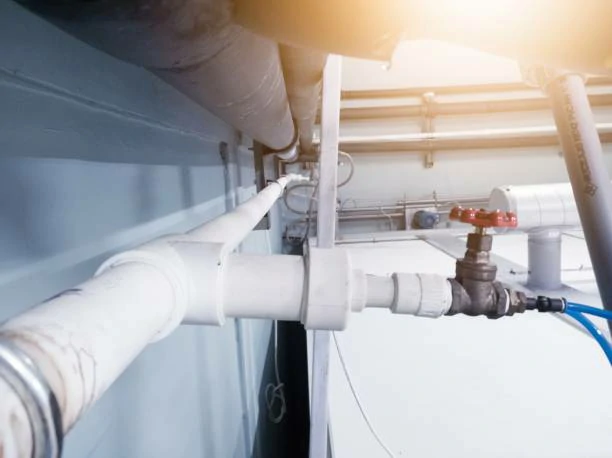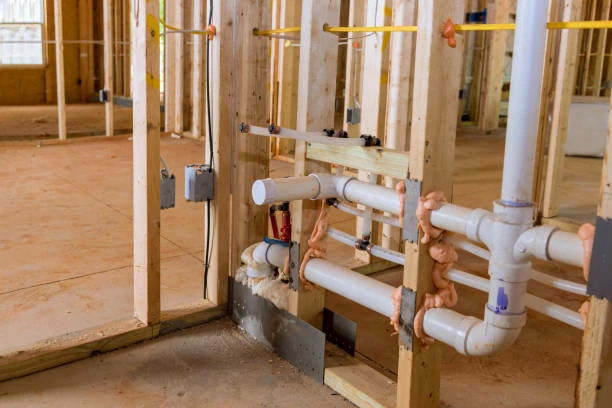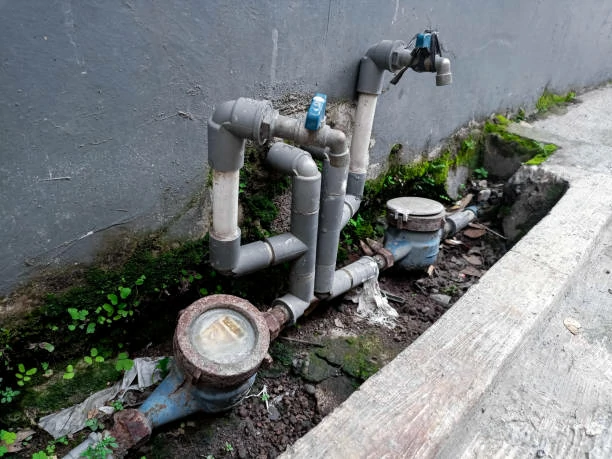PEX fittings play a vital role in connecting cross-linked polyethylene (PEX) pipes in plumbing systems. The materials used in these fittings significantly impact their performance, durability, and resistance to various environmental factors. Different materials, each with unique properties, offer distinct advantages for PEX fittings in residential, commercial, and industrial applications.
Brass: The Traditional Choice for PEX Fittings
Brass, an alloy of copper and zinc, stands out as one of the most widely used materials for PEX fittings. The reasons for its popularity include its durability, resistance to corrosion, and ability to withstand high temperatures and pressures.
- Durability: Brass fittings provide exceptional durability, making them suitable for long-term use in plumbing systems. This material handles both hot and cold water applications effectively, maintaining its integrity under varying conditions.
- Corrosion Resistance: Brass naturally resists corrosion, which is a significant advantage in plumbing systems exposed to water and other fluids. This resistance ensures that the fittings remain intact and functional over time, reducing the risk of leaks and system failures.
- Compatibility: Brass fittings connect seamlessly with various types of PEX pipes, offering versatility in different plumbing configurations. They also integrate well with other materials, such as copper and CPVC, making them ideal for a wide range of plumbing systems.
- Antimicrobial Properties: The copper content in brass provides antimicrobial properties, which helps inhibit the growth of bacteria in water systems. This feature proves beneficial in maintaining water quality, particularly in potable water systems.
Overall, brass fittings deliver a reliable and time-tested option for PEX plumbing systems, balancing strength, corrosion resistance, and ease of use.
Polyphenylsulfone: A High-Performance Thermoplastic
Polyphenylsulfone (PPSU) has gained popularity as a material for PEX fittings due to its exceptional performance in demanding environments. This high-performance thermoplastic offers numerous benefits, including chemical resistance, temperature tolerance, and impact resistance.
- Chemical Resistance: PPSU fittings resist a wide range of chemicals, making them ideal for systems that encounter aggressive substances. This chemical resistance ensures the longevity and reliability of the fittings, even in harsh conditions.
- Temperature Tolerance: PPSU maintains its structural integrity across a broad temperature range, from extreme cold to high heat. This characteristic makes it suitable for both hot and cold water systems, providing consistent performance regardless of temperature variations.
- Impact Resistance: The material’s excellent impact resistance reduces the likelihood of damage during installation or operation. This durability contributes to the overall reliability of the plumbing system, especially in environments where physical stress might occur.
- Lightweight Nature: PPSU fittings, while strong, remain lightweight, simplifying installation and handling. This feature proves particularly advantageous in large-scale or complex plumbing projects, where ease of installation is a priority.
PPSU fittings represent a modern alternative to traditional materials, offering durability, chemical resistance, and ease of use in various plumbing applications.
Stainless Steel: Strength and Hygiene Combined
Stainless steel, known for its strength and corrosion resistance, serves as an ideal material for PEX fittings in demanding applications. The combination of these properties, along with its hygienic benefits, makes stainless steel a preferred choice in industries where durability and cleanliness are critical.
- Strength and Durability: Stainless steel fittings provide unmatched strength, making them suitable for high-pressure systems and environments where mechanical stress might occur. This strength ensures the fittings maintain their structural integrity under challenging conditions.
- Corrosion Resistance: The natural corrosion resistance of stainless steel extends the life of the fittings, even in environments exposed to water, chemicals, or other corrosive elements. This resistance reduces the likelihood of leaks and failures, contributing to the long-term reliability of the plumbing system.
- Hygienic Properties: Stainless steel maintains a smooth, non-porous surface that resists bacterial growth and contamination. This hygienic quality makes it ideal for applications requiring strict cleanliness standards, such as in the food and beverage industry or pharmaceutical facilities.
- Temperature Resilience: Stainless steel handles extreme temperatures without compromising its structural integrity, making it suitable for various plumbing systems, including those transporting steam or other high-temperature fluids.
Stainless steel fittings offer a robust, hygienic solution for plumbing systems that demand both strength and cleanliness, particularly in industrial or commercial settings.
Plastic Fittings: Cost-Effective and Versatile
Plastic materials, such as high-density polyethylene (HDPE) and polybutylene, provide cost-effective alternatives for PEX fittings. These materials offer flexibility, ease of installation, and resistance to corrosion and scaling, making them suitable for a variety of plumbing applications.
- Affordability: Plastic fittings typically come at a lower cost compared to metal or high-performance thermoplastics. This affordability makes them an attractive option for budget-conscious projects, especially in residential plumbing systems where extreme durability might not be as critical.
- Lightweight: Plastic fittings are significantly lighter than their metal counterparts, simplifying transportation, handling, and installation. The lightweight nature of these fittings reduces the physical strain on installers and can lower overall project costs.
- Corrosion and Scale Resistance: Plastic materials resist corrosion and scaling, ensuring a smooth internal surface that maintains water flow over time. This resistance helps prevent blockages and reduces the need for maintenance, contributing to the long-term efficiency of the plumbing system.
- Ease of Installation: The flexibility and workability of plastic fittings make them easier to install, particularly in systems with complex layouts or tight spaces. Installers can quickly and securely connect plastic fittings to PEX pipes, speeding up the overall installation process.
While plastic fittings may not offer the same level of durability as metal or PPSU fittings, they provide a practical, cost-effective solution for many plumbing systems, particularly in less demanding environments.
Lead-Free Options: Ensuring Safety in Potable Water Systems
The growing awareness of lead’s harmful effects has led to the development of lead-free options for PEX fittings, particularly in systems that carry potable water. Lead-free fittings, often made from brass or other metals, meet stringent safety standards and provide peace of mind in water supply systems.
- Health and Safety: Lead-free fittings eliminate the risk of lead contamination in drinking water, ensuring the safety and health of consumers. These fittings comply with regulations such as the Safe Drinking Water Act, which mandates the use of lead-free materials in potable water systems.
- Durability: Lead-free brass fittings maintain the durability and corrosion resistance of traditional brass fittings while meeting safety standards. They offer a reliable, long-term solution for potable water systems that require both performance and safety.
- Compliance: Lead-free fittings meet various national and international standards, making them suitable for use in a wide range of plumbing systems. Their compliance with safety regulations ensures that they can be used with confidence in any water supply system.
By choosing lead-free PEX fittings, plumbing professionals can ensure the safety and quality of the water supply while maintaining the performance and reliability of the plumbing system.
Top 5 PEX Fittings Manufacturers
| Manufacturer | Country | Founded | Scale |
| IFAN | China | 1993 | 500-1Kemployees |
| Rehau | Germany | 1948 | 10K+ employees |
| Nibco | USA | 1904 | 1K-5Kemployees |
| Viega | Germany | 1899 | 501-1Kemployees |
| Apollo (Aalberts) | USA (Netherlandsparent co.) | 1928 (enteredPEX in 2006) | 51-200 employees |
Conclusion
The materials used in PEX fittings play a crucial role in determining the performance, durability, and safety of plumbing systems. Brass, PPSU, stainless steel, plastic, and lead-free options each offer unique benefits, making them suitable for different applications and environments. By understanding the properties and advantages of these materials, plumbing professionals can select the most appropriate PEX fittings for their specific needs, ensuring a reliable and efficient plumbing system.
Contact
IFAN is a professional manufacturer with 30 years of experience, dedicated to producing high-quality plastic pipes, fittings, and valves. Our products include brass valves, PPR valves, as well as various pipes and fittings to meet different customer needs. Whether you need plumbing and drainage pipes or valve products, IFAN can provide a diverse range of high-quality, cost-effective products to support your projects. Below is our contact information.
We will reply your email or fax within 24 hours.
You can call us at any time if there is any question on our production.
For more information,pls visit our webside https://www.ifanplus.com/
Pls Mailto: [email protected]
Whatsapp: + 86 19857948982






